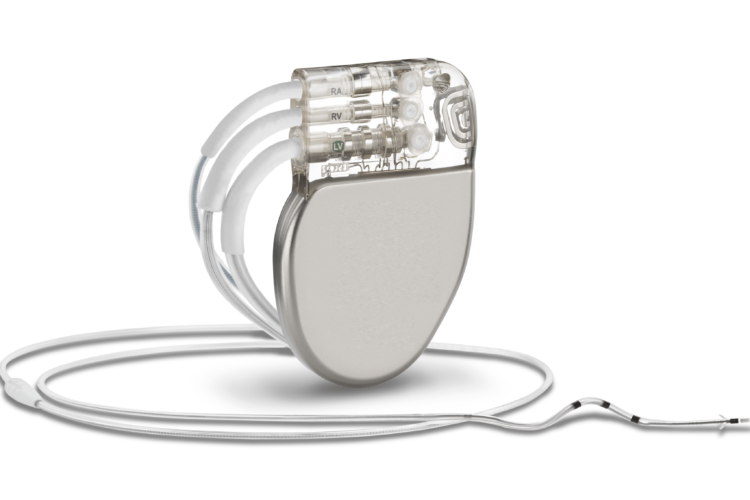TEMPORARY AND PERMANENT PACEMAKER IMPLANTATION
WHAT IS A CARDIAC PACEMAKER?
Every heart has its own internal electrical system and natural pacemaker that regulates the rate and rhythm of your heartbeats. With each heartbeat, an electrical signal spreads from the top of your heart to the bottom. As the signal travels, it causes the heart to contract and pump blood.
However, sometimes your heart beats too slowly that it may not be able to pump enough blood to the body. A pacemaker can correct this problem. It is a small device that sends electrical impulses to the heart muscle to maintain adequate heart rate and rhythm. A pacemaker is a small device, smaller than the size of your fist; that’s placed under the skin near your heart to help control your heartbeat.
WHO NEEDS A PACEMAKER?
Doctors may recommend pacemakers to you for many reasons. The most common reasons are very low heart rate and heart block. Heart block is a problem in the electrical system of the heart so that electrical signals cannot reach from upper chambers to the lower chambers of your heart. As a consequence pumping of your heart is reduced. Heart block can happen as a consequence of advanced aging, severe heart attack, or certain neuromuscular disorders.
Pacemakers can be temporary or permanent. Temporary pacemakers are used to treat short-term heart problems and during emergencies. They might be used until your doctor can implant a permanent pacemaker or until a temporary condition goes away.
TYPES OF PACEMAKER
There are different types and modes of pacemaker. Your doctor will decide what type of pacemaker is best for you based on your heart condition.
- Single-chamber pacemaker: It contains only one lead in the right side of the heart.
- Dual-chamber pacemaker: It contains two leads, one in the upper and another in the lower chamber of the right side of the heart.

